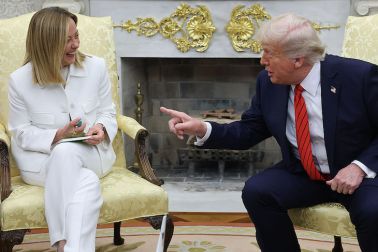The antics of Harry and Meghan would not have gone down well in the ancient world, where the family and its future flourishing were an absolute priority.
Harry’s proposal to marry Meghan would have been a matter of some negotiation – Roman orators argued that the paterfamilias (‘head of the family’, with absolute authority over it) should always be consulted on such matters, but ultimately it was wise to allow the son to have his way – but Meghan’s attitude would not have gone down well. The point is that the family was welcoming into its bosom a female outsider – a doubly dangerous moment – who had to learn the family’s ways. It was the job of the women of the family to ensure she did, and they would certainly have made their feelings about this uppity woman very clear.
Since respect for the family was a central feature of the Roman virtue of pietas, the sort of attacks that Harry subsequently launched against his own household would have seen him immediately cut off. If the paterfamilias needed heirs, he could keep their male children; but he might well prefer the usual practice of adopting reliable adult males (not babies – far too risky).
As Homer’s Iliad and Odyssey make clear, for Greeks too the importance of family was paramount. Even as the battle to take Troy raged about them, the Trojan Hector and his wife Andromache with their baby shared a famous scene, hoping against hope for the future. Odysseus resolved to get home to his Penelope, come what may. By contrast, the inventors of Greek tragedy (5th C bc) mostly explored the dysfunctionality of the mythical heroic families. How could it possibly be that these great figures so often brought about the destruction of such a precious human creation? Might there be some curse running down the generations?
Greeks might well have concluded that the Sussexes’ real problem was their absence of self-knowledge.








Comments
Join the debate for just £1 a month
Be part of the conversation with other Spectator readers by getting your first three months for £3.
UNLOCK ACCESS Just £1 a monthAlready a subscriber? Log in